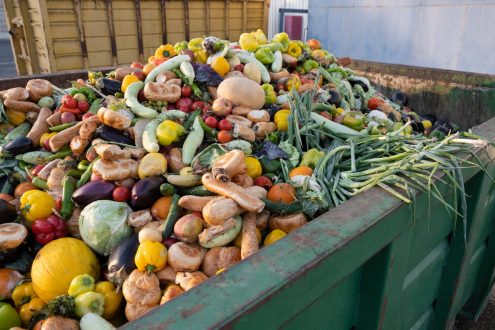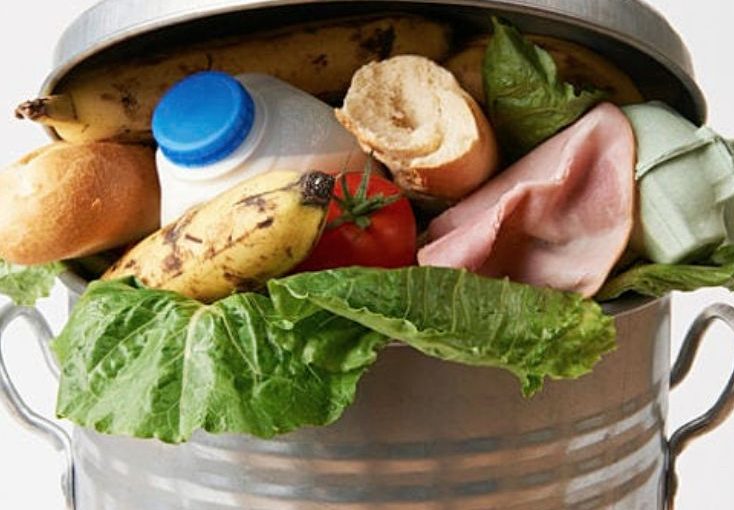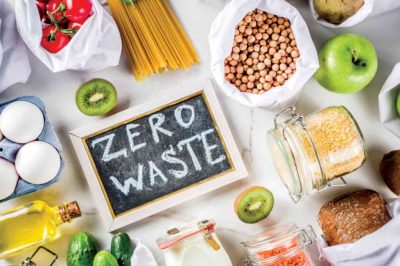Pakistan shares the world’s dilemma of grappling with the aftereffects of food waste and loss. The 2023 subject of the International Day of Awareness of Food Loss and Waste, “Reducing Food Loss and Waste: Taking Action to Transform Food Systems,” presents a chance for Pakistan to tackle this problem and progress toward creating a more resilient and food-secure country.
This article examines the significance of minimizing food loss and waste in Pakistan and emphasizes the urgent need for action to reform the country’s food systems.
Pakistan’s Food Loss & Waste Situation
Approximately thirty percent of food produced is wasted or lost worldwide. The figures in Pakistan are very alarming. The nation is attempting to reconcile a depressing paradox. Millions of people in the country go hungry every night, and a significant amount of food is lost or wasted within the supply chain.
Research reports revealed around 35-40% of all fruits and vegetables produced in Pakistan are wasted between harvest and retail. Furthermore, according to an estimate by the Ministry of National Food Security & Research, Pakistan, 19.6 million tonnes of food—or roughly one-third of all the food produced in the nation—are wasted annually. This striking discrepancy demands immediate attention.
The absence of adequate post-harvest infrastructure and storage facilities is one of the leading causes of food loss in Pakistan. Crops deteriorate and spoil before they are sold due to ineffective transportation and poor storage. A lack of awareness and education among farmers and consumers also contributes to this problem.
Conversely, food waste happens at different points along the food supply chain, from the point of production to the end of consumption. Improper storage, over-purchasing, and poor meal planning are the primary causes in households. Excessive serving sizes and poor kitchen management are two factors that lead to food waste in hotels and restaurants. These actions not only exhaust the nation’s resources but also make the problem of food security worse.

The Effect on Security of Food
Pakistan is a country where millions of people suffer from hunger and malnourishment, making food security a critical issue. Food waste aggravates the problem. Pakistan can considerably improve its food security by minimizing food loss and waste.
When food is wasted, all the resources necessary to generate it, such as water, land, energy, labor, and capital, are also destroyed. This waste is especially harmful in a country where water scarcity is a significant concern.
Food loss and waste increase food prices, making it unaffordable for many. By stabilizing food costs, waste reduction can increase the availability of nutrient-dense food.
Greenhouse gas emissions are produced when food waste is disposed of in landfills, exacerbating climate change. Pakistan should be especially cautious regarding this matter, given its susceptibility to climate change.
Reduced Food Loss and Sustainable Development Goals
Pakistan needs to align itself with the Sustainable Development Goals (SDGs) of the United Nations, especially SDG 12, which is focused on responsible consumption and production, to address these issues. Under SDG 12, Pakistan must increase its efforts to meet the world’s ambitious ambitions for eliminating food loss and waste.
SDG Target 12.3 aims to reduce per capita global food waste in the retail and consumer sectors by half by 2030. Pakistan must use innovative approaches to meet this goal, incorporate strategies to cut food loss and involve the public and private sectors in the project.
Also Read: 18th GA meeting of SMIIC takes place in Mecca
Initiatives to Cut Down on Food Loss and Waste in Pakistan
Reducing food loss and waste is a critical issue in Pakistan, as it can help alleviate hunger, save resources, and reduce environmental impact. Several initiatives and strategies have been implemented to address this problem in the country.
- Investing in more substantial post-harvest infrastructure, such as storage facilities and transportation networks, can help minimize food waste during the production and distribution phases.
- Launch national public awareness initiatives to inform farmers and consumers about lessening food loss and waste.
- Enforce laws and policies by the government that promote responsible production and consumption, such as those aimed at minimizing food waste in hotels and restaurants.
- Assist small-scale farmers in using improved methods to reduce food loss by offering them encouragement and training.
- Create a mechanism for recovering excess food and run programs to rescue it and distribute it to those in need instead of letting it go to waste.
- Invest in research and innovation to help enhance food preservation techniques and increase the shelf life of perishable goods.
- Encourage sustainable agricultural practices that limit resource use, such as water-efficient agriculture.

Pakistan’s food security and economic stability depend on its ability to reduce food loss and waste, making this an issue of paramount importance. Addressing this essential issue will put the country on the path to sustainability and resilience. Pakistan can help ensure that its population has access to more food security in the future, lessen the burden on its natural resources, and decrease the effects of climate change by adopting the Sustainable Development Goals and putting them into practice.
Food waste and loss must be reduced as a way of life in Pakistan, requiring participation from every sector of society. The choices that we make today will determine whether Pakistan remains hunger-free and sustainable in the future.
International Relations Scholar interested in National Security strategies, with a good focus on Geo-Politics, Foreign Policy, and Public & Cultural Diplomacy.







